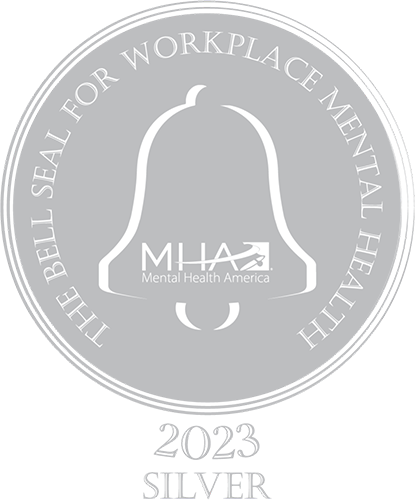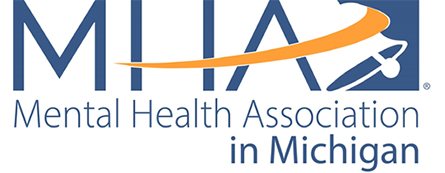Accomplishments
 MHAM has worked to expand and protect the rights of people with mental health conditions and improve the systems that serve them. We know effective policies are only created when all stakeholders play a part in the process, so we advocate to make sure mental health is always a part of the conversation. Examples of MHAM's many accomplishments over its history are:
MHAM has worked to expand and protect the rights of people with mental health conditions and improve the systems that serve them. We know effective policies are only created when all stakeholders play a part in the process, so we advocate to make sure mental health is always a part of the conversation. Examples of MHAM's many accomplishments over its history are:
- Obtained passage of legislation in 1944 allowing social workers to provide services in schools.
- Stimulated a successful bond issue in the early 1950s to increase the number of state psychiatric hospitals and to provide funding for establishment of the Hawthorn Center inpatient program for children and the Lafayette Clinic in Detroit (research, training and care facility).
- Obtained the first public appropriation for community aftercare services in Michigan (early 1960s).
- Stimulated passage of the state's first community mental health law in 1963.
- Played a major role in adoption of the Michigan Mental Health Code (1974).
- Procured the first legislative appropriation for a specifically designated mental illness prevention line item in the state budget (1976).
- Drafted 1984 legislation setting governing standards for admission and discharge of children to and from psychiatric hospitals.
- Co-founded the Schizophrenics Anonymous self-help program (1985).
- Established and conducted the first community-based monitoring programs of residential settings for mental illness (1980s-90s).
- Played a major role in substantial re-tooling of Michigan's Mental Health Code (1994-95).
- Stimulated establishment of and served on gubernatorial Mental Health Commission in 2004. (Subsequently drafted the only laws to be enacted in follow-up of the Commission's work.)
- Drafted state law on open access to medications in the Medicaid program for mental illness and other high-risk conditions (2004).
- Co-authored state laws on advance psychiatric directives and assisted outpatient treatment (2004-05).
- Founded and maintained a statewide coalition (Michigan Partners in Crisis) on mental health-and-justice system issues (2008-present).
- Analyzed and developed recommended changes for over 100 state policies and operating procedures on correctional mental health care (2009-10).
- Surveyed Michigan judges and CMH programs to establish state baseline data on assisted outpatient treatment usage and perceptions; procured state legislation promoting jail diversion and Medicaid continuity for incarcerated individuals (2014).
- Served throughout 2016 on the state's work groups examining structure and funding for coordinated services to persons with mental illness who also have other medical conditions.
- Assisted in the passage of amendments to the Michigan Mental Health Code that advises a recipient of community mental health services of the opportunity to engage in mediation when there is a dispute regarding services (2019-2020).
- Worked collaboratively with the Michigan Department of Health and Human Services and the Governor's Office to ask for and create a statewide emotional support line for Michiganders who are struggling with COVID-19. The emotional support line, known as the stay well connected counseling line, was implemented by the state on May 15, 2020 based on a Federal grant (2020).
- Spearheaded and effort with other advocacy organizations to address issues relative to the potential for medical rationing due to COVID-19 and the negative impact that discrimination in medical treatment may have on persons with disabilities. A letter written by a collection of advocacy organizations and advocates to Governor Whitmer in late April of 2020 resulted in an Executive Order that spoke to medical rationing. MHAM and Disability Rights Michigan (formerly Michigan Protection and Advocacy Service) collaborated on a webinar about this issue that was hosted in early May (2020)
- Supported legislation (HB 5832) that would create crisis stabilization units for individuals experiencing acute psychiatric symptoms (2020).
- Host monthly community educational webinars. Some topics have been on youth suicide, coping with anxiety, children's mental health, BIPOC, eaiting disorders, transgender and identity, and addressing the intersection of the criminal justice system and mental illness, to name a few (2020 - Present).
Additionally, we work with many partners to host and publicize webinars that bring public health information to as many people as possible. In these free 60-minute webinars, people will learn strategies that can be implemented to promote mental health and receive practical expert advice for themselves and their family members who may be struggling with different mental health challenges. The expert panel will discuss how to help overcome the stigma associated with mental illness, share practical solutions that can help us improve our mental health, and share the best resources available on the topic.
One of MHAM's priorities is to bring more programming services to constituents that provide information and coping strategies around common struggles that affect mental health.




